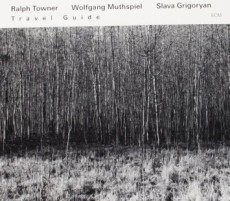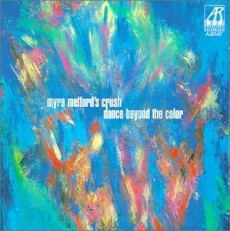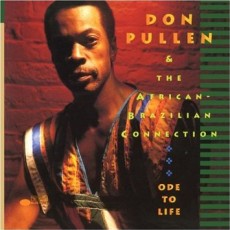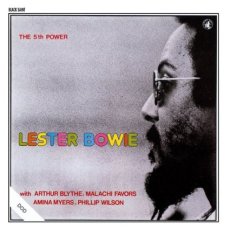
Daily Dose Of jazz…
Ralph Towner was born on March 1, 1940 in Chehalis, Washington. Born into a musical family, his mother a piano teacher and his father a trumpet player, Towner learned to improvise on the piano at the age of three. He started trumpet lessons at the age of five, but did not take up guitar until attending the University of Oregon.
Ralph first played jazz in New York City in the late 1960s as a pianist and was strongly influenced by the renowned jazz pianist Bill Evans. He began improvising on classical and 12-string guitars in the late 1960s and early 1970s; and formed alliances with musicians who had worked with Evans, including flautist Jeremy Steig, Eddie Gomez, Marc Johnson, Gary Peacock ad Jack DeJohnette.
He began his career as a conservatory-trained classical pianist, who picked up guitar in his senior year in college, then joined world music pioneer Paul Winter’s Consort ensemble in the late 1960s. Leaving Winter along with band mates Paul McCandless, Glen Moore and Colin Walcott, they formed the group Oregon, mixing folk, Indian classical, avant-garde jazz and frr improvisation.
Around the same time, Towner began a longstanding relationship with ECM Records, releasing virtually all of his non-Oregon recordings since his 1972 debut as a leader Trios / Solos. As a sideman he has ventured int jazz fsion with Weather Report on the 1972 album I Sing The Body Electric.
Unlike most jazz guitarists, Ralph only uses 6-string nylon-string and 12-string steel-string guitars. He tends to avoid high-volume musical environments, preferring small groups of mostly acoustic instruments that emphasize dynamics and group interplay. He make significant use of overdubbing, allowing him to play piano or synthesizer and guitar on the same track. During the Eighties he used more synthesizer but has returned to the guitar in recent years.
Composer, arranger, bandleader and multi-instrumentalist Ralph Towner, who plays 12 string guitar, classical guitar, piano, synthesizer, percussion and trumpet, has an impressive catalogue of some five-dozen recordings spread between his role as a leader, with Oregon, and as a sideman with Paul Winter and Weather Report among others. He continues to perform, record and tour.
More Posts: guitar,percussion,piano,synthesizer,trumpet

Daily Dose Of Jazz…
Kent Kessler was born January 28, 1957 in Crawfordsville, Indiana and grew up on Cape Cod, Massachusetts. He began playing trombone at age ten and when his family moved to Chicago when he was 13, he became intensely interested in jazz. While attending St. Mary Center For Learning High School, he began taking electric bass lessons and jazz theory in the middle of the 1970s.
In 1977 Kent formed the ensemble Neutrino Orchestra, spent a year in Brazil in 1980, took time studying off and on at Roosevelt University in Chicago; and formed a group called Musica Menta, which played regularly at local Chicago venue Link’s Hall.
Kessler began playing double bass in the 1980s and it became his primary instrument when he was asked in 1985 to join the NRG Ensemble, toured Europe, recruited Ken Vandemark, recorded for ECM Records and the two would go on to collaborate extensively on free jazz and improvisational projects such as the Vandemark 5, DKV Trio and the Steelwool Trio.
From the 1990s on Kent would work with the leading Chicago musicians such as Hamid Drake, Fred Anderson and Joe McPhee as well as several European musicians. In 2003, Kessler released a solo album, Bull Fiddle, on OkkaDisk. Kessler performs alone on nine of the twelve tracks and with Michael Zerang on three. The double-bassist who remains active is best known for his work in the Chicago jazz and avant-garde scene.
More Posts: bass

Daily Dose Of Jazz…
Myra Melford, born on January 5, 1957 in Evanston, Illinois is an avant-garde and post bop jazz pianist and composer. Raised in a house designed by Frank Lloyd Wright, at 3 she started playing the piano on her own, climbing onto the piano bench and improvising. She began taking lessons when she was in kindergarten and developed a strong relationship with her teacher, classically trained boogie-woogie player Erwin Helfer. He introduced her to classical composers such as Bach before moving on to contemporary composers, such as Bartok. He would later teach her to play the blues.
High school saw Myra attending Northwestern University extension program, enrolling in Evergreen State College in Olympia, Washington and studying environmental science. Although she wasn’t listening to jazz she knew it involved improvisation and a sign in a local restaurant for jazz piano lessons sparked her interest in music again. Shortly thereafter she changed her major to music and in 1980 attended Cornish College of the Arts under the tutelage of Art Lande and Gary Peacock.
While living in Olympia, Melford met prominent avant-garde musicians including Oliver Lake, Anthony Braxton Marty Ehrlich and Leroy Jenkins, whose performance with Amina Claudia Myers and Pharaoh Sanders intensified her commitment to improvisation.
A move in 1984 landed Medford in New York City where she studied composition with saxophonist Henry Threadgill, also studied privately with pianists Jaki Byard and Don Pullen, performed with Threadgill Jenkins and Butch Morris. In the late 80s she performed and recorded with flutist Marion Brandis, forming a trio and accelerating her career in the 90s as part of the first Knitting Factory tour of Europe. She recorded three albums with Lindsay Horner and Reggie Nicholson – Jump, Now & Now, and Alive in the House of Saints.
Later in the 90s, Myra moved toward larger groupings with diverse instrumentation, added trumpeter Dave Douglas and reed player Marty Ehrlich and created a quintet, the Myra Melford Extended Ensemble. She also formed a second five-piece, the Same River, and the self-titled debut album was released on Gramavision in 1996, followed by 1999’s Above Blue on Arabesque. She has performed with the Art Ensemble of Chicago, and with Equal Interest, playing harmonium instead of piano.
Since 2000, Melford has formed and recorded as a trio, spent time in India studying harmonium, formed another ensemble to present her Indian studies, relocated to Berkeley, California accepting a professorship at UC Berkeley in contemporary improvisation. She formed Trio M and released another debut album in 2007 followed by a sophomore project in 2012
Myra has received a Guggenheim Fellowship, Doris Duke Charitable Foundation’s Performing Artist Award, and Alpert Award in the Arts for Music, Jazz Journalist Association Pianist and Composer of the Year among others and has a small but impressive catalogue of eight albums and continues to perform, record and educate.

Daily Dose Of Jazz…
Don Pullen was born on December 25, 1941 and was raised outside Roanoke, Virginia and learned to play the piano at an early age. He played with the choir in his local church, was heavily influenced by his jazz pianist cousin, Clyde “Fats” Wright and took some lessons in classical piano. He knew little of jazz, concentrating mainly on church music and the blues.
Leaving Roanoke for Johnson C. Smith University in North Carolina to study for a medical career, Pullen soon realized that his true vocation was music. After playing with local musicians and being exposed for the first time to albums of the major jazz musicians and composers he abandoned medical studies for music.
By 1964 he was in Chicago with Muhal Richard Abrams, then moved to New York City and immersed in the avant-garde recording with Giuseppi Logan. Along with band mate Milford Graves formed a duo, started a small label and recorded his first sessions that did great in Europe. He turned to more profitable organ and during the 60’s and 70s played trio dates and backed such vocalists as Arthur Prysock, Irene Reid, Ruth Brown, Jimmy Rushing and Nina Simone. He held a brief position with Art Blakey and the Jazz Messengers in 1972.
Over the course of his career he would play with Charles Mingus, lead his own groups, form the George Adams/Don Pullen Quartet, put together the African Brazilian Connection, worked with Native American drummers and choir, and played with Nilson Matta, Carlos Ward, Gary Peacock, Tony Williams, Hamiet Bluiett, Bill Cosby, Jack Walrath, Maceo Parker, Roy Brooks, Jane Bunnett and David Murray among others.
Don Pullen jazz pianist, organist and composer of blues to bebop, who recorded over 30 albums as a leader and more than three dozen as a sideman, passed away of lymphoma on April 22, 1995.

Daily Dose Of Jazz…
Lester Bowie was born on October 11, 1941 in the historic village of Bartonsville in Frederick, Maryland however he grew up in St. Louis, Missouri. At the age of five he started studying the trumpet with his father, a professional musician and grew up playing with Little Milton, Albert King, Solomon Burke, Joe Tex and Rufus Thomas. In 1965, he became Fontella Bass’s musical director and husband and co-founded the Black Artists Group (BAG) in St Louis.
In 1966, Bowie moved to Chicago, worked as a studio musician, meeting Muhal Richard Abrams and Roscoe Mitchell became a member of the AACM (Association for the Advancement of Creative Musicians). In 1968, he founded the Art Ensemble of Chicago and was a member of Jack DeJohnette’s New Directions Quartet. Lester lived and worked in Jamaica and Africa, recording with Fela Kuti.
In 1984, he formed Lester Bowie’s Brass Fantasy, a nonet demonstrating jazz’s links to other forms of popular music, covering songs by Whitney Houston, Michael Jackson Marilyn Manson and the Spice Girls along with more serious material. His New York Organ Ensemble featured James Carter and Amina Claudia Myers.
Although seen as part of the avant-garde, Bowie embraced techniques from the whole history of jazz trumpet, filling his music with humorous smears, blats, growls, half-valve effects, and so on. He had an affinity for reggae and ska, appeared on the Stolen Moments: Red, Hot + Cool compilation in support of the Aids epidemic in the African American community that Time Magazine named Album of the Year.
Throughout his career trumpeter Lester Bowie took an adventurous and humorous approach to music. He passed away of liver cancer on November 8, 1999 and was posthumously inducted into the Down Beat Hall Of Fame in 2000. The following year the Art Ensemble of Chicago recorded Tribute To Lester.
More Posts: trumpet


